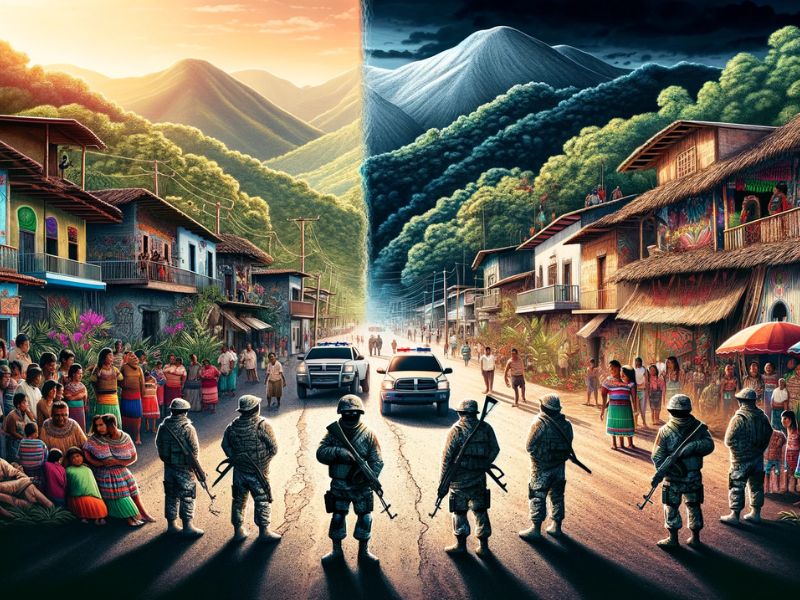
Shadows of Crime on the Healthcare System in Chiapas
How Cartel Presence Affects Emergency Services
Challenges in Rescue Operations in a Turbulent Context
Chiapas, the poorest state in Mexico, has become a battleground for violent clashes between drug cartels, particularly the Sinaloa Cartel and the CJNG (Jalisco New Generation Cartel). This conflict has resulted in mass displacements and numerous deaths, with over 3,000 residents of Frontera Comalapa forced to flee their homes and at least 60 people killed in the last two weeks. The presence of “narco-tanks,” armored vehicles used by the cartels, has been documented on social media, demonstrating the intensity and brutality of the conflict, which focuses on drug trafficking routes and migrant smuggling between Guatemala and Mexico.
The Influence of Narco Cartels on Local Communities
The cartels exert unprecedented control over the daily lives of indigenous communities along the Mexico-Guatemala border. The absence of the state, high inequality, and a lack of basic services have allowed criminal groups to deeply entrench themselves in the region. Local communities view militarization as a temporary and ineffective solution to underlying problems. Furthermore, cartel intimidation and violence directly impact people’s daily lives, even influencing food prices and decisions regarding school openings.
The Relationship Between Indigenous Communities and Cartels
Organized indigenous communities, such as those associated with the Zapatista movement, have been less vulnerable to cartel predation. These communities, with their own educational, economic, and self-defense systems, have largely managed to protect young people from the lucrative job offers made by the cartels. However, even Zapatista communities are facing unprecedented pressures, with paramilitaries now equipped with better weapons and cartel hitmen readily available.
Challenges of Rescue Operations in a Hostile Environment
The dominant presence of cartels in Chiapas not only fuels violence but also creates significant obstacles for rescuers and emergency services. In an environment where roads can be blocked by “narco-tanks” or controlled by armed cartel members, access to affected areas becomes extremely perilous. This not only slows response times but also puts the lives of rescuers at risk as they navigate terrain threatened by armed conflicts and ambushes.
The situation worsens in rural and isolated areas, where emergency services are already limited. Here, communities heavily rely on local volunteers and rescuers who, despite fear and threats, continue to provide assistance. However, these teams often operate without the necessary support, such as adequate equipment or advanced training, making their work even more challenging and dangerous.
Furthermore, cartels have begun to directly influence rescue services. In some cases, they have imposed illegal taxes on the activities of rescuers or attempted to recruit members of emergency teams for their own purposes. This creates an environment where rescuers must balance the need to provide urgent assistance with the reality of operating under cartel scrutiny and control.
In this scenario, international support and media attention become crucial. Not only to highlight the difficulties faced by rescuers but also to exert pressure on the Mexican government and international organizations to provide resources, training, and protection to emergency workers in Chiapas. Only through joint and coordinated efforts can we hope to alleviate the challenges faced by these everyday heroes, ensuring their safety and the necessary resources to continue their vital work in the most vulnerable communities.
An Appeal for Targeted Intervention
The situation in Chiapas calls for intervention that goes beyond mere military presence and addresses local needs significantly. Substantial investment is needed that respects local priorities and tackles the root causes of violence and destabilization caused by drug cartels. Without these structural changes, cartel violence and influence will continue to threaten the sovereignty and well-being of indigenous communities in Chiapas.


